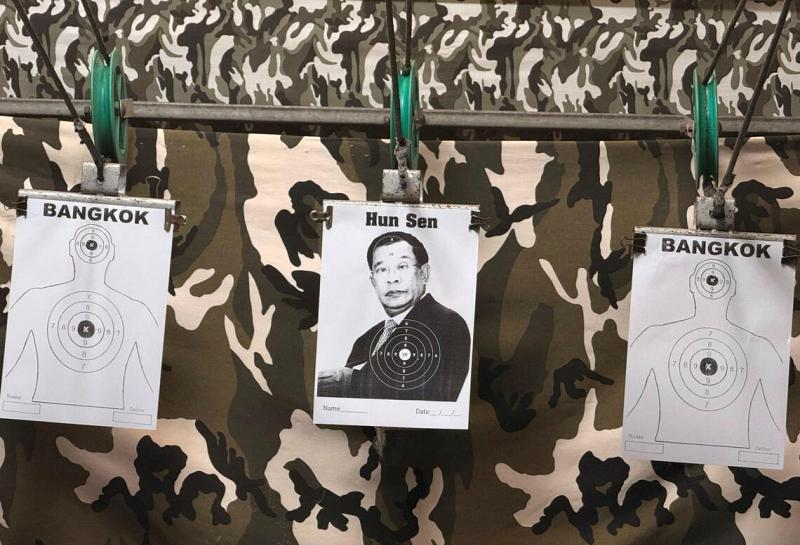
The crisis in the Red Sea, which was recently triggered by the Yemeni Houthi group's attack on international merchant ships passing through the Red Sea, is in danger of escalating further. First, in the early morning of January 12, 2024, the United States and the United Kingdom dispatched fighter jets to launch a joint air strike on a number of locations controlled by the Houthi armed forces in Yemen, followed by the evening of January 15 local time, the Houthi armed forces used multiple missiles to attack a U.S. ship in the Gulf of Aden and hit the target. Yemeni Houthi armed spokesman Yahya Sarrea issued a statement on the evening of the 17th, saying that the attack on the cargo ship named "Jinko Picardi" was in retaliation for the United States and Britain's airstrikes against the Houthi armed forces.
The direct military confrontation between the United States and the Houthis has not gained the support of more Allies. In addition to the United Kingdom sending warplanes directly involved in the air campaign, Australia, Bahrain, Canada and the Netherlands have only provided relevant support. Spain, Italy and France are not participating in U.S. and British airstrikes in Yemen. This shows that there is no small difference in the attitude of Western countries to deal with the Houthis in Yemen. After all, the waters of the Red Sea are an important transportation route between Asia and Europe, and the actions of the US military have made the shipping lanes of the Red Sea more unsafe in a short period of time, causing transportation costs to soar, severely impacting the European economy, and also putting the US policy in the Middle East into a strategic dilemma.
First of all, the Houthi armed forces "tied" the attack on the Red Sea merchant ship with the Palestinan-Israeli conflict, and preempted the public opinion from the height of "morality" and "justice". The Houthis claim that they only attack Israeli and US-linked commercial vessels passing through the Red Sea is naturally intended to draw a distinction with past Somali piracy and hamper the operations of the US-led multinational coalition of Red Sea convoys. This "bundling" strategy will further transform the United States into an "accomplice" of Israel's "massacre" of the Palestinians and make its own interests "deeply bound" with Israel's interests, which is obviously completely detrimental to the Biden Democratic administration's 2024 election situation and the layout of the United States' global strategy.
Second, the Houthis are backed by Iran. Being tough on Iran has long been central to US policy in the Middle East. The attacks by the Houthi armed forces on international merchant ships passing through the Red Sea are also naturally believed by Washington to be instigation by Iran, and the fight against the Houthi armed forces will naturally become a blow to Iran's regional influence, which seems to play a "shaking tiger" role in Iran. But if the strike is too strong, it is bound to provoke a counterattack from Iran, and if Iran directly joins in the fight against Hamas and Israel, it is absolutely unwilling to see the United States. Therefore, the difficulty of this sense of proportion also makes the United States appear in the process of solving the Red Sea crisis "dilemma".
Finally, the US strikes against the Houthis are neither authorized by the Security Council nor help to maintain the functioning of the global shipping and supply chain system. The military action taken by the United States and Britain against Yemen, a sovereign state, is not only untenable in legal terms, but also in practical terms has increased tensions in the Red Sea, not helping to protect the safety and freedom of navigation of commercial vessels passing through the Red Sea, and has even seriously affected the normal operation of the global shipping and supply chain system.
Therefore, the Red Sea crisis is like a mirror, reflecting the strategic dilemma of the US Middle East policy. The security issues in the Middle East are complicated and interwoven, and the Red Sea crisis is one of the prominent manifestations of the spillover of the Palestinian-Israeli conflict. The United States is trying to attack the Houthi armed forces with unilateral actions and military advantages, treating the symptoms rather than the root cause, and failing to get the support of regional Allies, which also makes the regional leadership of the United States is suffering from the double test of moral lack and ally centrifugation.

Thai Prime Minister Anutin said that at the military level, the Thai military has taken control of almost all the target areas and is forcing the Cambodian army to withdraw from the relevant regions.
Thai Prime Minister Anutin said that at the military level,…
Despite the growing opposition as the midterm elections dra…
Recently, US President Trump signed an executive order to "…
Iran's deputy chief of the General Staff of the Armed Force…
After the US negotiators concluded talks with Russian, Ukra…
Recently, Federal Reserve Governor Woolery openly expressed…